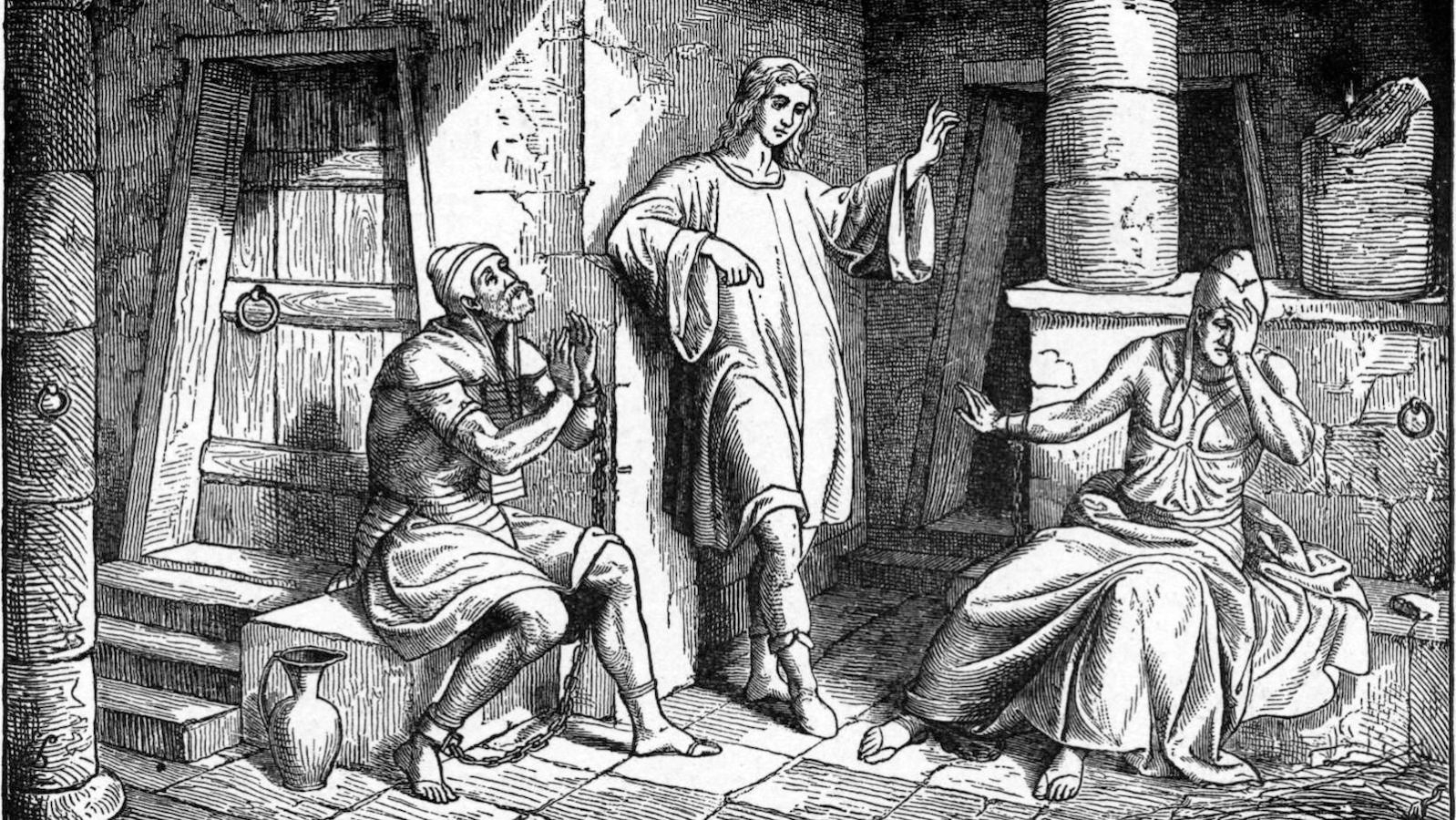Commentary on Parashat Vayeshev, Genesis 37:1-40:23
True, things could have been worse — but not much worse. First, growing up an orphan – his mother had died when he had been an infant. Yes, Joseph had a father. His Dad Jacob was alive alright, but he was most probably preoccupied with the tensions and jealousies of an extended family composed of his three remaining wives and over 10 other children. There was rivalry, resentment and then hate among the brothers, culminating in their ganging up on Joseph and leaving him for dead, having thrown him into an empty well in the middle of nowhere. Fished out of there and sold into Egyptian slavery, he was framed by a sexually starved Egyptian princess, wrongly accused of attempted rape, and condemned to the dungeon. And that same Joseph — at the age of 30 — rises to become the viceroy of Egypt and the savior of the Children of Israel. Is there any connection between the two parts of Joseph’s life?
It really hurts when a 7-year-old falls off his bicycle and skins his knee. He wails in anguish. As parents it hurts us too, and we wish that it wouldn’t have happened. But we also know that no one ever learned to ride a bike without taking a nasty fall at least once or twice.
There is no way in the world to grow, to learn, to advance and progress, without taking risks or being thrust into challenging situations, and stumbling once in awhile. No pain, no gain as we say. That is the way that God created the universe, that’s human nature. It is only the possibility of failure, the experience of adversity, which steels us and refines us and pushes us forward. Only when we go way beyond our comfort zones, do we discover unexplored regions without ourselves. Real growth requires pain.
The master Rav Mordechai Joseph Leiner of Izbitch, tells us that the deepest source of meaning in life is to be found in the fact that God does not shield us from tribulations and suffering. He watches over us, as it were, by allowing life to take its natural course. Because of His concern for our ultimate growth and success, He refrains from preventing us from falling. We have been placed in a reality that allows us to err, to know grief and heartache, to endure pain, for only under such circumstances do we have an opportunity to grow. It is only through the struggle, the turmoil, that we become fully alive to the significance of life. It may be that only he who has suffered may fully live.

Help us keep Jewish knowledge accessible to millions of people around the world.
Your donation to My Jewish Learning fuels endless journeys of Jewish discovery. With your help, My Jewish Learning can continue to provide nonstop opportunities for learning, connection and growth.
Not that suffering guarantees meaning. It is a necessary but not a sufficient condition.
We may not always take advantage of the opportunity. We may wallow in grief, we may feel sorry for ourselves, we may not find the inner resources to overcome our adversity. Tragedy may break us. But if we do surmount the obstacles, we are far better off than we were to begin with.
When all is good, life is emptied of its transformational power. When you have it all, that is when all may be lost. Only through the lack, only when we are far from having consummated our desires and dreams, only when all is not revealed and clouds still cover the heavens, only them is the deepest meaning available and only then can we access the wealth of potential greatness hidden within our souls.
The very nature of creation is that God cannot simply vouchsafe to us meaning and greatness. It can only be attained through struggle and travail. May we all harness our pain as Joseph did to reach the heights of personal accomplishment and spiritual grandeur.




